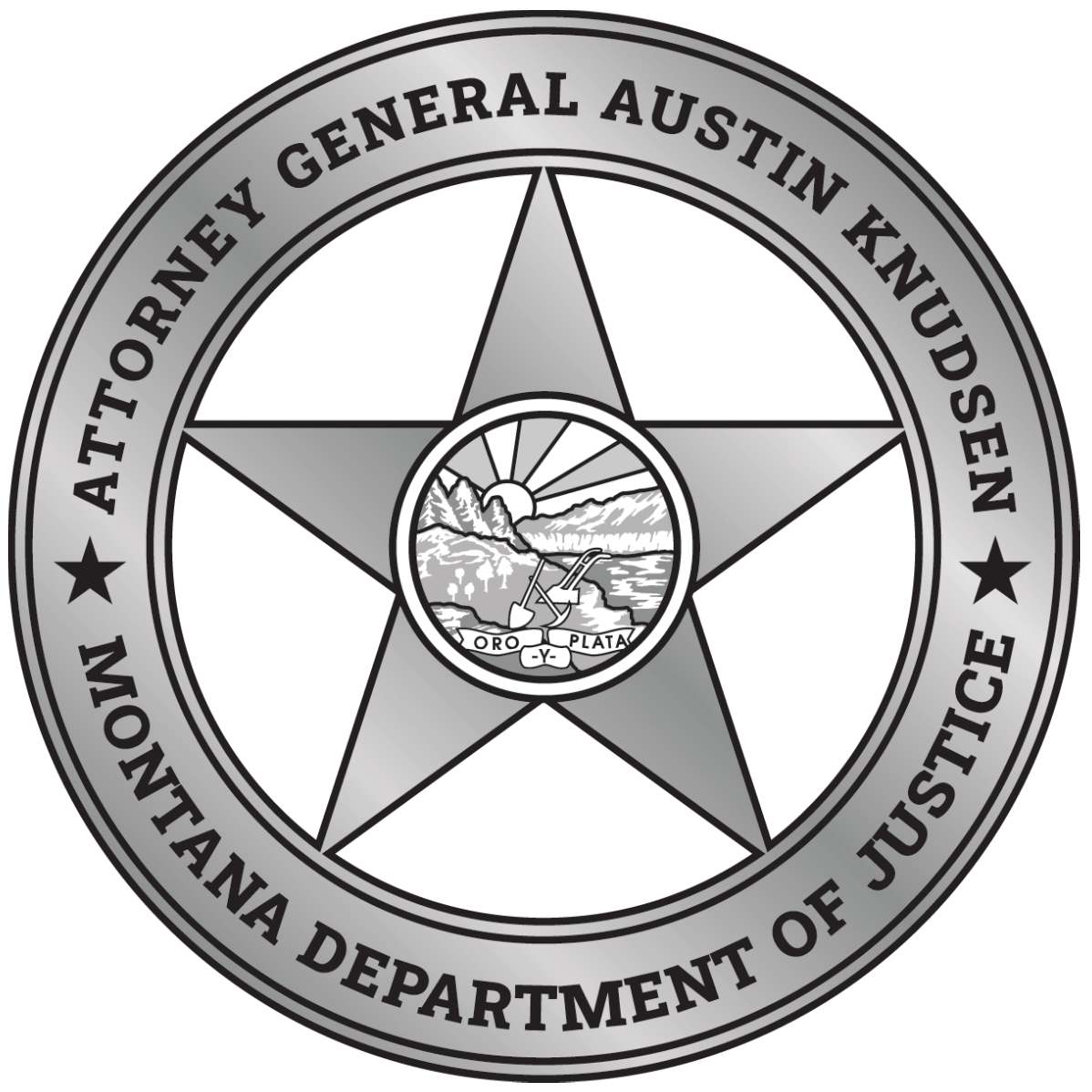
The men and women who bravely serve in our military forces protect our country and its citizens from threats across the globe. Unfortunately, they can still become the victims of identity theft, scams, bad lending practices, and other criminal behaviors during the time they are deployed, when they are back on U.S. soil, and after they have retired from military service. The Office of Consumer Protection at the Montana Department of Justice offers these tips to help protect our military personnel, veterans, and their families from falling prey to identity thieves and scam artists.
For Currently Active Military Personnel and Their Families:
While Deployed – Set up an ‘Active Duty Alert’ on your credit report if you’re deployed and don’t expect to open a new line of credit, such as a car loan, mortgage, or a new credit card. The Active Duty Alert requires creditors to take additional steps to verify your identity before allowing new credit in your name. Active Duty Alerts last for terms of one year, but can be renewed. To set one up, call the fraud department of any of the three credit reporting agencies, or fill out the Active Duty Alert. They are then responsible for contacting the other two credit reporting companies.
Experian — Website or call 888-397-3742
Equifax — Website or call 888-766-0008
Transunion — Website or call 888-909-8872
Be Wary of Military-Targeted Scams – Certain scams are meant to specifically target military personnel and veterans, so it’s important to be aware of some of the most commonly seen types of these ploys.
–Online Housing Ads: Offers of military discounts or too-good-to-be-true rates for military personnel are often posted by con artists looking to scam would-be renters out of their security deposits.
TIP: You don’t have to pay for copies of your military records.
Several online-based companies charge a fee to get your military personnel records, especially the DD214 (Certificate of Release or Discharge from Active Duty). They claim to be “expeditors” who can speed up the process of acquiring your documents. However, these documents can be requested quickly and for no cost by submitting the forms yourself, either online or via mail.
While you are free to choose how you want to obtain your own records, you should be fully educated about your options. All accessible military service records are available for free through the milConnect website. The DD214 can also be acquired by mailing or faxing a Standard Form “SF 180” to the National Personnel Records Center. Detailed instructions on how to request your service records are available on the U.S. Department of Veterans Affairs (VA) website.
TIP: Be wary of rental rates that:
— are significantly lower than average for the area, and/or
— request you to send money via a wire transfer service for a security deposit. Consider utilizing the Department of Defense sponsored Automated Housing Referral Network (http://www.ahrn.com/) to find a rental home.
–Imposter Recruiters: Con artists impersonating government contractor recruiters ask for sensitive identity information or documents (such as a passport, Social Security Card, etc.) on the guise of offering a job. However, there is no job and they really just want to steal the would-be job applicant’s identity.
TIP: Never hand over identification documents until you have met with a potential employer at the employer’s location during regular work hours.
–Veteran’s Affairs Impersonators: Scammers pretend to be representatives of the U. S. Department of Veterans Affairs and request personal bank, credit card or identity information, giving them access to those accounts.
TIP: Never give out personal account or identity information over the phone or internet to someone who contacted you first. Instead, hang up and call the VA directly and ask if the VA has been trying to contact you. Do this even if the email address or caller ID says Veteran’s Affairs. Scammers can manipulate e-mail addresses and caller I.D. to make them look legitimate.
–Dubious Military Charities: Some charitable organizations claiming to raise money for military organizations or causes actually end up using the donations received to line the organizers’ pockets.
TIP: Military One Source, a DOD-funded program, produced a podcast about avoiding fraudulent charities for military families here. To see if a charity is reputable, see its rating at http://www.charitynavigator.org/ or at http://www.give.org/
For Veterans and Their Families:
Protect Your Pension – Veterans over the age of 65 may be eligible for supplemental pension benefits. However, this can lead to shady practices by some “specialists” who try to persuade veterans to make investment decisions about their pensions without disclosing relevant information. In some cases, these “specialists” try to convince the veteran to transfer their assets to trusts or other investments in order to appear needy and to qualify for the Enhanced Pension with Aid and Attendance benefits. Doing so, however, could actually disqualify the veteran from certain pension benefits the veteran may already be receiving. It may also make the veteran ineligible to receive Medicaid services.
TIP: If you want to apply for enhanced pension benefits, you can access the appropriate forms through the Veterans Benefits Administration at http://www.benefits.va.gov/pension/#7 or 1-800-827-1000. If you want help with the process, the VA does accredit some insurance agents and financial planners, so ask to see their VA accreditation. Keep in mind these individuals may charge a fee for their services, but the VA application forms are free. There should be no surcharges for accessing these VA forms, although the client may be charged for the professional’s time in accessing said forms.
Before engaging in a business relationship with anyone in regard to managing your pension benefits, be sure to thoroughly scrutinize their professional credentials. Each industry typically has its own standards and tools for verifying the qualifications of its members. Here are three examples, along with relevant tools:
For insurance agents, check to make sure they are licensed through the Montana Office of the Commissioner of Securities & Insurance at https://sbs-mt.naic.org/Lion-Web/jsp/sbsreports/AgentLookup.jsp or 406-444-2040.
For financial advisors, there are two types to choose from, and they differ in how they are compensated. Fee-Based advisors may earn commissions from the financial products their clients purchase, sometimes along with being paid a fee for their advice. Fee-Only advisors do not earn any commissions from selling financial products to their clients, and instead are compensated through an hourly rate, retainer, or percentage of the investments they manage for a client. U.S. News & World Report offers a free Advisor Finder tool online at http://money.usnews.com/financial-advisors. Fee-Only advisors can be located through the National Association of Personal Financial Advisors at http://www.napfa.org/ or 847-483-5400.
For anyone who is licensed to sell stocks, bonds, mutual funds and other securities, the Financial Industry Regulatory Authority (FINRA) has a BrokerCheck tool that can give information about a broker’s experience, qualifications, regulatory actions, violations and/or complaints. The BrokerCheck tool is available online at http://brokercheck.finra.org/
For lawyers, Consult the Montana Bar Association at http://www.montanabar.org/search/custom.asp?id=2249 or 406-442-7660 to see if the lawyer is licensed and authorized in this state.
G.I. Benefits – Make the most of your Tuition Assistance or G.I. Bill benefits by utilizing the Department of Education’s College Navigator to find out if a school is for or not-for-profit. The College Navigator tool also shows information about each school’s accreditation, average loans taken out, and graduation and default rates. This information can help you find the university that will help you reach your educational goals in a financially feasible manner.
Access Your Earned Benefits – Some scammers try to charge veterans for services they can get for free elsewhere, like getting copies of their military record, or applying to receive benefits.
TIP: Contact the Veterans Benefits Administration if you have any questions about accessing your benefits at http://www.benefits.va.gov/benefits/ or 1-800-827-1000. It’s always free to apply for veterans benefits. Don’t give any information out to people who claim they can help you access your benefits for a fee.
REVIEW YOUR RIGHTS
The Servicemember Civil Relief Act is a federal law that provides certain judicial and administrative assistances for active duty personnel and their dependents. The SCRA guarantees certain protections, such as capping interest rates on outstanding credit card debt, protecting against eviction and foreclosure, allowing for early termination of some leases, and granting stays of certain civil judicial proceedings among many other things. PLEASE NOTE you must take special actions, such as giving your creditors written notice and a copy of your military orders calling you to active duty, in order to take advantage of the SCRA’s protections.
The Military Lending Act is a federal law that caps the Military Annual Percentage Rate at 36 percent for some types of consumer loans for active duty members of the armed forces and service members on active Guard or Reserve duty and their dependents. The cap applies to lines of credit including certain payday loans, auto title loans, and tax refund anticipation loans and includes the costs of interest, fees, credit service charges, credit renewal charges, credit insurance premiums, and other fees for credit-related products sold in connection with the loan. The MLA also requires specific disclosures and prohibits creditors from requiring service members to submit to arbitration to resolve disputes.
Be wary of aggressive advertising from lenders who charge interest rates that are too high. Even though Montana law has the rate on small-dollar consumer loans capped at 36 percent (the same rate as the MLA), there are still service members who find themselves in a financial bind and feel forced to take out online loans with rates many times higher, some even over 1,000 percent APR. These extremely high interest rate loans may be easy to get, but may make your situation worse, not better. OCP encourages you to talk to someone you trust before taking out one of these loans.

